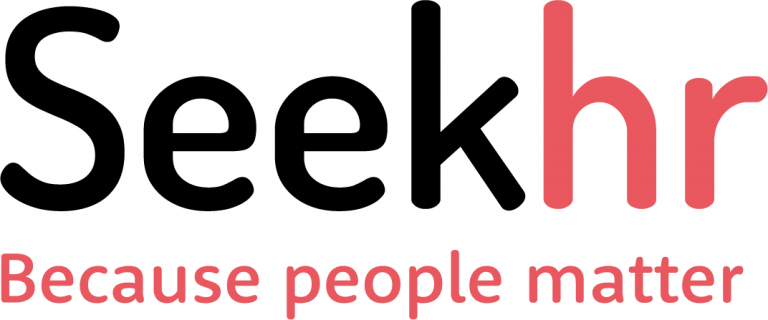Women are a force to be reckoned with in the business world. Some of the most successful global companies are run by women entrepreneurs and innovators.
However, still to this day, women remain subject to some deep-rooted stereotypes. In light of Women’s Independence Day coming up, we tackle the most sinister misconceptions that still circulate the business world today.
#1 Leaders were born male
Granted, there are marginally fewer women in executive leadership roles, however, this doesn’t impede on the ability for women to be leaders. It’s not uncommon to hear, “women aren’t ambitious”, and “women are too scared to take risks”, and even, “women don’t put themselves out there”.
However, these misconceptions are completely blinded by reality. Women are just as ambitious as men. Risk alertness keeps women grounded. Confidence is a complex concept that displays itself differently in men and women.
To put it frankly, leadership is an art rather than a science. Behavioural Theories believe that people can become leaders through the process of teaching, learning and observation.
So, what does make a good leader?
Research conducted by the GLOBE across 60 countries leader attributes concludes: “Integrity, charisma, inspirational, visionary, encouraging, positive, confidence builder, dynamic, foresight, effective team building, communicating, coordinating, decisive, intelligent, and win-win problem solver.”
#2 Being a mother gets in the way of being a leader
Much has been discussed back and forth about the impact of becoming a parent on a woman’s career. Becoming a mother is believed to reduce their commitment to wanting to succeed. Choosing to “have it all” is usually more problematic for women, however, in reality, it is down to gender rather than parenthood that is the obstacle for women getting to the top.
To flip this myth on its head, research suggests that to demonstrate leadership skills and the ability to make significant business decisions, quality overrides the quantity of time a person needs to spend in the office.
In fact, senior women often speak about the positive impacts having a family has had on their career. Some have said it has helped to broaden perspective, develop efficiency, not forgetting the increased determination to succeed.
#3 Women are not made to be entrepreneurs
A common misconception amongst the general consensus is that virtually all entrepreneurs and leaders of successful, million-pound companies are male. You’re wrong! Statistics suggest that women are more likely than men to start a business. To be precise, the number of women entrepreneurs grew by nearly 10% between 2013 and 2014.
Don’t believe us? Take a look at the list of Fortune 500 companies below you may be aware of, all of whom have women taking the rein.
- General Motors – Mary Barra
- IBM – Ginni Rometty
- PepsiCo – Indra Nooyi
- Ulta Beauty – Mary Dillon
- Khol’s – Michelle Gass
Having said this, why are there still so few women at the top? Partnered with the consulting firm McKinsey & Company, Leanin.org, the organisation created by Facebook COO Sheryl Sandberg to help empower women, reveals not so good news: they found that women have less access to senior leadership roles, women negotiate as often as men for a promotion or increased compensation but receive more pushback and women are less likely than men to receive feedback when they ask for it.
#4 Women are bad at numbers
Despite best efforts, women are still sadly underrepresented in the fields of maths, science and technology, and falsely accused of being less capable in these industries.
Challenging the traditional Evolutionary Theory, which claims that biological differences make women less intelligent, modern scientists today argue cultural stereotypes are the obstacle. The Institute for Fiscal Studies’ (IFS) latest report shows that while girls perform similarly to boys in science, technology, engineering and mathematics (STEM) disciplines at the level of GCSEs, they avoid taking them at A-levels.
So, in fact, women are not bad with numbers at all, it is a choice to not pursue such a career – another story altogether.
#5 The biggest enemy of women, is a woman
Portrayals in the media suggest that women executives, particularly in male-dominated industries, do not support subordinate women. In fact, they stop their professional advancement, contributing to gender inequality within the workplace.
A well-known example of this is Margaret Thatcher, the UK’s first female prime minister, who received the “queen bee” label for not promoting the careers of other women in her cabinet.
Untrue of course, this myth is particularly dangerous when it comes to empowering women in the corporate world. And the research speaks for itself. Taken from The New York Times, “The Myth of the Catty Woman”, when one woman reaches a senior management position, the person blocking the second woman’s path isn’t usually a queen bee; it’s a male Chief Executive. And when women join the board, there’s a better chance that other women will rise to top executive positions.
Women create opportunities for women.
With much admiration for all the women who have come before us and fought for the equality women so richly deserve, let’s shine a light on why a smaller percentage of women than men reach the top of their professions. Only then can we go about creating the necessary change.
***
Are you an EA, PA, or business support professional looking to take your career to the next level? Executive Partnerships can help. We’re a specialist recruitment agency working with leading companies and organisations to connect them with talented staff. Learn more at www.executivepartnerships.co.uk.





